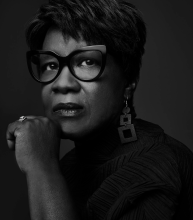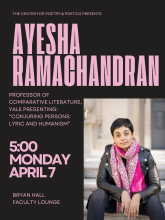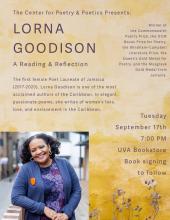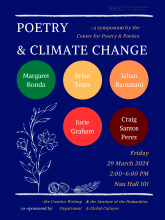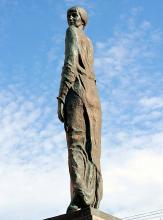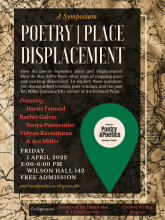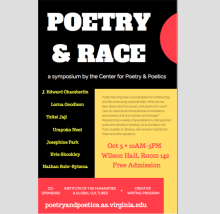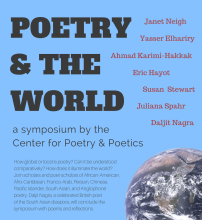News
- October 21, 2025Patricia Smith: Poetry Reading
- September 17, 2024Poetry Reading: Lorna Goodison
- March 23, 2023Dunja Dušanić Lectures on Poetry as a Witness to Catastrophe
- October 5, 2018"Poetry and Race" Symposium Brings Poets, Critics to Grounds
- April 19, 2018Virginia Jackson Lectures on "Becoming Lyric"
- April 6, 2018"Poetry and the World" Features Renowned Poets, Critics
- October 26, 2017Jonathan Culler Lectures on "Theory of the Lyric"
- March 17, 2017"What is a Poem?" Symposium Kicks Off Poetry Center
